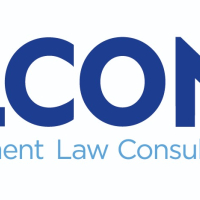24.05.2017
A Conversation about “Operational Excellence” – What’s the framework for the conversation?
Mike Johnson Associates Ltd.
Business Consultant
A Conversation about “Operational Excellence” – What’s the framework?
In my previous article, “Operational Excellence” (OpEx) - What on Earth is it? I wrote about conversations between colleagues as a method of defining OpEx for your particular business, agreeing what your organisation would look (and feel) like if it reached it’s potential.
Interestingly, at a recent Petrochemical conference, the Speaker from Solomon Associates (renowned for their studies in the global energy industry) noted in the key insights that “World Best” does not equal “world’s most complex” or “newest” – so you need to be careful in thinking about the potential of your business, it’s an easy option to write it down too quickly.
How do these OpEx conversations start? What’s the framework that will produce some meaningful and actionable outputs that can help on a journey to excellence? Do we start with lean, agile, six sigma, TPM or the next big thing? Don’t get bogged down in philosophical arguments – they’re all fundamentally about Waste Reduction anyway!
Take a step back, 20 years ago a study by Hanson and Voss identified a correlation between the operation’s “Practices” and “Performance”. Practices reflect how the operation is run and Performance reflects the key numbers that the operation produces.
The correlation describes the maturity (not age) of the operation. Whilst lean, agile, six sigma, TPM etc. methodologies have certainly raised the bar in terms of what is accepted as an excellent operation, I have seen the fundamental correlation between practices and performance repeatedly.

Good practices underpin sustained good performance. The simplified diagram shows the effect and there are two key messages.
Firstly, that if you want to move from “Laggard” to “Sustainable Operations Excellence”, there are phases to go through, no one makes the leap overnight.
Secondly, if you want to drive your business forward it’s no good concentrating on only driving the Performance, the numbers. There are horror stories of plants (and industries) consuming their assets by driving them too hard, neglecting maintenance, reducing costs, until ultimately the plant falls over. Unfortunately, we’re all aware of the cost of poor safety performance. Similarly, neglecting training and succession planning will help to reduce costs, as it’s often the easiest place to look for cuts. However, how does this affect morale and the competency level of the business now and in the future? Think about how, here, in the UK we’re rediscovering the value of apprentices.
The areas marked A and B on the diagram are home to some outliers that don’t fit the general correlation. If you’re in A, then you’re probably consuming your assets or “living on the edge” of sustainability and you can probably feel it every day. If your business is in B then you’re almost certainly living in a bureaucratic organisation with red tape and systems that add little or no value to the operation. Both can be equally frustrating!
Think of the performance and practices as a balanced scorecard for driving the sustainable improvement of your business. This gives you a rounded (or holistic or systemic if you want to be trendy) view of the levers that are available to you to pull across the whole of your business, involving everyone who can contribute to realising your potential.
Nice words, however I’ve seen in it the real world. In fact, some of the highest practices scores I’ve come across were from a German organisation where the Union was represented at board level. The fact that the union views were represented at board level may or may not have influenced the score, however the additional communication channels throughout the organisation that were realised because of their involvement, certainly created an environment where people understood and acted on the “things that are important around here”.
If I’ve managed to explain this, you’re still with me, and this seems to agree with your experience, then the performance v practices can provide a viable framework for your conversations about Operational Excellence.
Here’s the bit where you need to help me. As a latecomer to this technology, I miss the face to face feedback associated with explaining these thoughts and therefore don’t know if I’m being informative or not. If you’re interested in understanding more about what representative practices and performance are, to kick off your conversations or add to this one, please leave a comment and next week I’ll go into some more detail.
Or give me a call on 0788 5524 208.
Mike Johnson
In my previous article, “Operational Excellence” (OpEx) - What on Earth is it? I wrote about conversations between colleagues as a method of defining OpEx for your particular business, agreeing what your organisation would look (and feel) like if it reached it’s potential.
Interestingly, at a recent Petrochemical conference, the Speaker from Solomon Associates (renowned for their studies in the global energy industry) noted in the key insights that “World Best” does not equal “world’s most complex” or “newest” – so you need to be careful in thinking about the potential of your business, it’s an easy option to write it down too quickly.
How do these OpEx conversations start? What’s the framework that will produce some meaningful and actionable outputs that can help on a journey to excellence? Do we start with lean, agile, six sigma, TPM or the next big thing? Don’t get bogged down in philosophical arguments – they’re all fundamentally about Waste Reduction anyway!
Take a step back, 20 years ago a study by Hanson and Voss identified a correlation between the operation’s “Practices” and “Performance”. Practices reflect how the operation is run and Performance reflects the key numbers that the operation produces.
The correlation describes the maturity (not age) of the operation. Whilst lean, agile, six sigma, TPM etc. methodologies have certainly raised the bar in terms of what is accepted as an excellent operation, I have seen the fundamental correlation between practices and performance repeatedly.

Good practices underpin sustained good performance. The simplified diagram shows the effect and there are two key messages.
Firstly, that if you want to move from “Laggard” to “Sustainable Operations Excellence”, there are phases to go through, no one makes the leap overnight.
Secondly, if you want to drive your business forward it’s no good concentrating on only driving the Performance, the numbers. There are horror stories of plants (and industries) consuming their assets by driving them too hard, neglecting maintenance, reducing costs, until ultimately the plant falls over. Unfortunately, we’re all aware of the cost of poor safety performance. Similarly, neglecting training and succession planning will help to reduce costs, as it’s often the easiest place to look for cuts. However, how does this affect morale and the competency level of the business now and in the future? Think about how, here, in the UK we’re rediscovering the value of apprentices.
The areas marked A and B on the diagram are home to some outliers that don’t fit the general correlation. If you’re in A, then you’re probably consuming your assets or “living on the edge” of sustainability and you can probably feel it every day. If your business is in B then you’re almost certainly living in a bureaucratic organisation with red tape and systems that add little or no value to the operation. Both can be equally frustrating!
Think of the performance and practices as a balanced scorecard for driving the sustainable improvement of your business. This gives you a rounded (or holistic or systemic if you want to be trendy) view of the levers that are available to you to pull across the whole of your business, involving everyone who can contribute to realising your potential.
Nice words, however I’ve seen in it the real world. In fact, some of the highest practices scores I’ve come across were from a German organisation where the Union was represented at board level. The fact that the union views were represented at board level may or may not have influenced the score, however the additional communication channels throughout the organisation that were realised because of their involvement, certainly created an environment where people understood and acted on the “things that are important around here”.
If I’ve managed to explain this, you’re still with me, and this seems to agree with your experience, then the performance v practices can provide a viable framework for your conversations about Operational Excellence.
Here’s the bit where you need to help me. As a latecomer to this technology, I miss the face to face feedback associated with explaining these thoughts and therefore don’t know if I’m being informative or not. If you’re interested in understanding more about what representative practices and performance are, to kick off your conversations or add to this one, please leave a comment and next week I’ll go into some more detail.
Or give me a call on 0788 5524 208.
Mike Johnson
Mike Johnson Associates Ltd.
Business Consultant
I am a seasoned Consultant with 16 years’ experience in delivering results through diagnosis, planning and execution across a range of industries. My career path has been though Engineering…
Property
Why Do We Need Emergency Lighting?
Emergency lighting plays a critical role in ensuring life safety first in any…
Employment & HR
Labour’s new Employment Rights Bill: challenges employers...
The introduction of Labour’s Employment Rights Bill on 10th October 2024 has created a significant shift in how…
More Articles
Business Management
The Value of a Sustainability Strategy in the Tender Process
In today’s competitive landscape, businesses face increasing pressure to demonstrate their commitment to…
Business Management
Unlocking the Power of Raw Financial Data
At Master of Coin Consulting, we offer independent strategic finance advice to help micro to medium-sized businesses…
Would you like to promote an article ?
Post articles and opinions on Professionals UK
to attract new clients and referrals. Feature in newsletters.
Join for free today and upload your articles for new contacts to read and enquire further.







